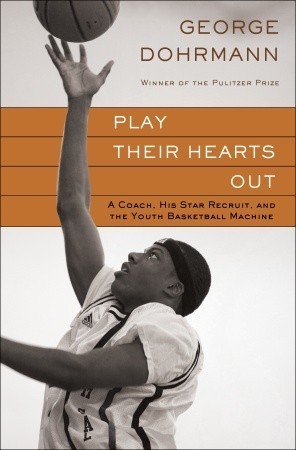
The Longest Race: Inside the Secret World of Abuse, Doping, and Deception on Nike's Elite Running Team
Book Description
Beneath the shining medals and glory lies a darker truth—one that pulsates through Nike's elite running team. Kara Goucher pulls back the curtain on a world steeped in betrayal, where dreams are chased at the cost of physical and emotional integrity. With first-hand accounts and a relentless pursuit of justice, this gripping narrative unveils the hidden risks of success, the perils of pressure, and the insidious grip of doping. As the lines blur between ambition and morality, how far will athletes go to win? This is more than a race; it's a battle for identity, honor, and the soul of sport.
Quick Book Summary
"The Longest Race" by Kara Goucher is a courageous memoir unveiling the dark side of elite distance running. Goucher, a decorated Olympic runner, reveals her experiences inside Nike’s Oregon Project, where the relentless pursuit of victory fostered a culture of abuse, secrecy, and pervasive doping. Through her candid storytelling, Goucher exposes the emotional and ethical challenges she faced, from the pressures to conform to questionable medical practices to the psychological toll of psychological manipulation by powerful coaches. The book not only highlights her personal struggle for integrity but also examines the systemic problems affecting female athletes. Ultimately, Goucher’s narrative is one of resilience, empowering others to demand honesty, respect, and reform within the highest echelons of sport.
Summary of Key Ideas
Table of Contents
Pressure and Culture of Elite Athletics
Kara Goucher’s journey into elite running began with her entry into Nike’s Oregon Project—a world-class training group that promised greatness. As she chased her athletic dreams, Goucher quickly realized that the pursuit of excellence came with immense pressure and expectations. Coaches and management fostered a win-at-all-costs mentality, making it clear that individual needs were often secondary to the demands of sponsors and performance. This culture bred not only camaraderie, but also competition and fear among athletes who risked exclusion or losing funding.
Abuse of Power and Manipulation
Within this high-pressure environment, Goucher encountered disturbing abuses of power. Coaches, especially Alberto Salazar, wielded immense influence over athletes’ training, health, and careers. Goucher describes emotionally manipulative tactics, blurred professional boundaries, and episodes of intimidation that undermined her agency. Especially acute was the experience as a female athlete, where her needs and vulnerabilities were exploited in a male-dominated hierarchy. The lack of oversight and transparency allowed manipulation to go unchecked, leaving athletes like Goucher isolated and powerless.
Doping and Ethical Dilemmas
Integral to the Oregon Project’s operations was the issue of doping and the normalization of questionable medical practices. Under the guise of innovation and science, athletes were pressured into taking medications and following regimens that carried ethical and health risks. Goucher describes her internal turmoil—balancing the dream of Olympic success with growing doubts about legality and fairness. The atmosphere made it nearly impossible to refuse treatments or ask questions without jeopardizing one’s career, resulting in a pervasive culture of silence and complicity.
Speaking Out and Seeking Justice
Eventually, Goucher’s conscience compelled her to speak out. Enduring threats of legal action and fearing professional ruin, she became a whistleblower against Salazar and Nike. This decision extracted a heavy personal and professional cost, subjecting Goucher to public scrutiny, retaliation, and the loss of long-time relationships. Yet, her courage sparked broader conversations about athlete safety, gender equity, and ethical accountability in sports organizations, ultimately contributing to policy changes and sanctions.
Resilience and Reclaiming Identity
Through resilience, community support, and a renewed sense of purpose, Goucher reclaims her identity beyond medals and records. She champions athlete advocacy, striving to ensure future generations compete in environments defined by respect and integrity. Her story is ultimately one of hope—demonstrating the power of truth in building a more just and humane sports world, where ambition is not built upon silence or exploitation but upon mutual trust and dignity.
Download This Summary
Get a free PDF of this summary instantly — no email required.





